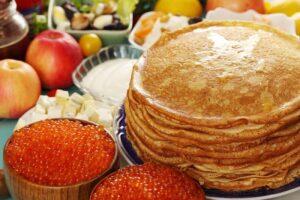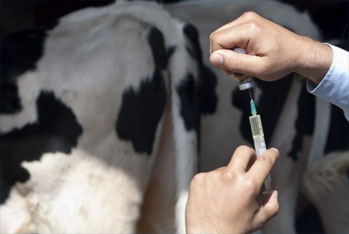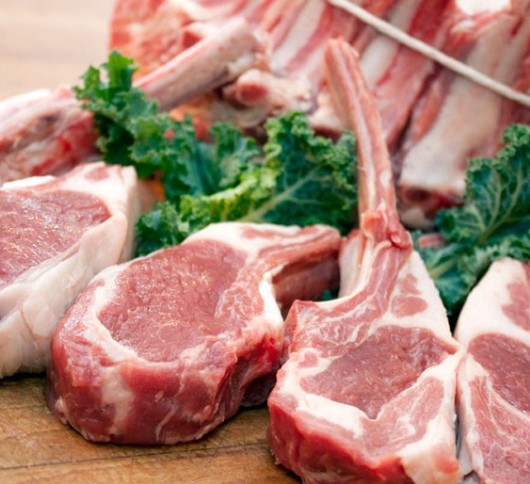In the Orenburg region, farmers were trained in scientific fodder production

At the Orenburg State Agrarian University, a practical seminar-meeting on the topic “Forage production is the basis of animal productivity” was held for the heads of peasant farms.
The event was attended by heads of district departments (departments) of agriculture, heads of peasant farms from 25 municipal districts and urban districts of the region, heads and specialists of the Ministry of Agriculture, Food and Processing Industry of the Orenburg Region, manufacturers and suppliers of agricultural machinery and equipment.
The meeting was opened by the First Vice-Governor - First Deputy Prime Minister - Minister of Agriculture, Trade, Food and Processing Industry of the Orenburg Region Sergey Balykin. He recalled that the creation of a sustainable forage base that provides balanced feeding of animals throughout the year is the main condition for the high efficiency of the livestock industry. This requires an increase in the production of high-energy grain fodder crops, as well as an expansion of crops under forage mixtures of grain and leguminous crops for harvesting grain haylage in the phase of milky-wax ripeness of grain.
“In this regard, this year the task was set to sow fodder crops on an area of 235 thousand hectares. To date, all the necessary conditions have been created for laying fodder for the current year and creating an insurance fund for 2023,” Sergey Balykin said.
The First Vice-Governor cited the data: as of January 1 of this year, 7,330 peasant (farmer) households and individual entrepreneurs operating in the field of agriculture were registered in the region, more than 1.6 million hectares of agricultural land were assigned to them, of which arable land occupies 1 million 154 thousand hectares. The average size of agricultural land in a peasant farm is 208.5 hectares.
“Small business entities, along with all agricultural producers of the region, use state support measures provided for by the state program “Development of agriculture and regulation of agricultural products, raw materials and food markets in the Orenburg region.” One of the types of state support is a grant for the development of a family farm, - said the first vice-governor and explained: in total for the period 2019-2021. 69 grants were provided for the development of family farms in the amount of 631.7 million rubles. 5011 heads of cattle, 1000 heads of sheep, 168 bee packages were purchased with the grant funds; from equipment: 30 tractors, 6 combines, 148 units. trucks and utility vehicles, agricultural machinery for cultivating land and hay equipment, equipment for farms, as well as various agricultural implements. reconstructed, 15 farm buildings, warehouses or production facilities were built and purchased. 349 jobs were created.
This year, 19 grants were issued for the development of a family farm in the amount of 204 million 41.2 thousand rubles.”
That is why, according to Sergey Balykin, it is necessary to show farmers different ways of harvesting coarse, succulent fodder, to teach how to prepare mixed fodder from different grain crops, as well as to grow fodder with a high protein and energy content.
During the seminar, the participants listened to the speeches of OSAU scientists and suppliers of machinery and agricultural equipment. the university is working on the task of providing the cow with a complete plant protein. And this, in turn, leads to the solution of a number of problems: the life expectancy of a cow increases, its productivity and the quality of MILK, including fat content. From 12 kilograms of good milk, a kilogram of cheese is obtained, in which the protein content is 40%. This is an invaluable product
The second part of the seminar was a practical part with a visit to the farms of the region. Demonstrations of a static exposition of harvesting machinery and equipment for animal husbandry (mowers, rakes, balers, feeders, milking machines) were prepared for the participants; dynamic exposure of technology, wolf tedding and windrowing with rakes-tedders.
OGAU also presented a field with sainfoin. Here, experiments are underway to grow feed with a high protein content for cows, which Vitaly Bezuglov spoke about during the theoretical part. All developments are available for livestock farmers.
Summing up the results of the seminar-meeting, Sergey Balykin said that such events are necessary in order for farmers who take grants for the development of animal husbandry to apply scientific approaches in their work, use practices approved by scientists, and achieve profitability and obtain high-quality environmentally friendly products.
Read together with it:
- Новое видео на нашем канале: Эдильбаи: чёрные или рыжие, какие лучше набирают вес? Мнение Бауржана Оспанова и Ерагыя ГишларкаеваВ этом видео показана работа по отбору баранов (предварительное назначение баранов на случку). Баранов прогоняют через драфтер и определяют массу, упитанность, выявляют класс "элита". По ходу сортировки Бауржан Кенесбекович Оспанов и Ерагый Исаевич Гишларкаев обсуждают возраст баранов: годовалые, полуторагодовалые, двухлетки и оценивают, каких из них стоит готовить на искусственное осеменение, как...
- Belarus presented its products at the Agro Food Drink Tech Expo in Georgia.Photo: belinterexpo.by, November 28, MINSK . Belarus presented an exhibit at the Agro Food Drink Tech Expo in Georgia, the press service of Belinterexpo, the Belarusian Chamber of Commerce and Industry, told BELTA. "Belarusian producers are expanding their EXPORT geography, increasing product deliveries abroad, including developing partnerships in Eastern European countries. Georgia is thus a prom...
- Belarus presented its products at the Agro Food Drink Tech Expo in Georgia.Photo: belinterexpo.by, November 28, MINSK . Belarus presented an exhibit at the Agro Food Drink Tech Expo in Georgia, the press service of Belinterexpo, the Belarusian Chamber of Commerce and Industry, told BELTA. "Belarusian producers are expanding their EXPORT geography, increasing product deliveries abroad, including developing partnerships in Eastern European countries. Georgia is thus a prom...
- Специалисты КСУП "Нива-Барсуки" рассказали, как удалось собрать самый большой в своей истории урожай зерновыхНовости темы Одно из передовых сельхозпредприятий Могилевской области КСУП "Нива-Барсуки" в этом году собрало самый большой в своей истории урожай зерновых. Как итог, в четвертый раз подряд сельхозорганизации вручили почетное переходящее знамя Кировского райисполкома. Кроме того, хозяйство входит в тройку лидеров среди аграриев Могилевщины в номинации "Экономическая эффективность". Пообщались со с...
- Волгоградская область ожидает повышения объемов сельхозпродукции до 410 млрд рублей в 2025 годуВ частности, планируется, что сбор зерна в 2025 году достигнет 5,8 миллиона тонн, что представляет собой рост на 31% к 2024 году. Также наблюдается стабильная работа в животноводстве, где поголовье крупного рогатого скота удерживается на уровне 350 тысяч голов. Малый агробизнес также активно развивается: количество фермерских хозяйств увеличилось до 5......
- The land of sapphires and jade. Belarus has found a new foothold in Southeast Asia, and it just needs to gain a foothold.Накануне стало известно Президента Беларуси Александра Лукашенко в Юго-Восточную Азию, а точнее, в Мьянму. Дипломатические отношения с этой страной были установлены еще четверть века назад. Однако долгие годы особой динамики не наблюдалось, несмотря на активные - и порой успешные - попытки белорусского правительства зайти на рынок Мьянмы. Санкции и непростая внутриполитическая обстановка не способ...






















































